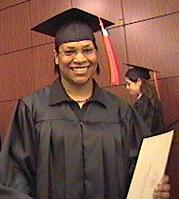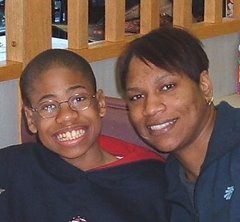From NAA... If you have been coming to the NYC meetings, but have not joined, please take a moment to go here: http://www.nationalautismassociation.org/join.php and join through the national website.
Reasons to join the NAA!
- Supports treatments that help our children, including biomedical treatments
- Provides outreach and support for families who have just been diagnosed
- Offers member discounts from certain companies that provide supplements for autistic children http://www.nationalautismassociation.org/join.php.
- Supports relevant autism research, including a current study exploring the link between mercury and autism: http://www.nationalautismassociation.org/researchmercury.php.
- Distributes email updates on relevant legislative activity
- Connects you to a large network of families and practitioners in the autism community
When you join NAA, you automatically become a member of the New York Metro Chapter. You will benefit from the local monthly educational sessions geared towards families, educators and caregivers affected by Autism and receive help from our NAAvigators who will help families navigate the system.
For autism information and practical strategies visit: child-autism-parent-cafe.com.
Wednesday, June 18, 2008
Friday, June 13, 2008
GAO Report on Federal Disability Programs
From Margaret Dunkle, Director, Early Identification and Intervention Collaborative for Los Angeles County and Senior Fellow, Center for Health Services Research & Policy, George Washington University
The Government Accountability Office May 20th report on Federal Disability Programs: More Strategic Coordination Could Help Overcome Challenges to Needed Transformation has a lot going for it. But it’s not the first place one would normally look to find a jazzy report with tough recommendations. GAO recommends that Congress create a new coordinating entity to make more than 200 federal programs in 20 agencies dealing with disabilities fit together for real people. Noting these programs typically have different missions, goals, funding streams and eligibility criteria. And it is generally left to the people with disabilities and their families to figure out how to navigate the confusing maze of services, supports and benefits.
Interestingly, by focusing primarily on adults with disabilities and pretty much ignoring children with disabilities, this report actually underestimates the extent of fragmentation and confusion. You can find the full GAO report at: http://www.gao.gov/new.items/d08635.pdf. child-autism-parent-cafe.com
The Government Accountability Office May 20th report on Federal Disability Programs: More Strategic Coordination Could Help Overcome Challenges to Needed Transformation has a lot going for it. But it’s not the first place one would normally look to find a jazzy report with tough recommendations. GAO recommends that Congress create a new coordinating entity to make more than 200 federal programs in 20 agencies dealing with disabilities fit together for real people. Noting these programs typically have different missions, goals, funding streams and eligibility criteria. And it is generally left to the people with disabilities and their families to figure out how to navigate the confusing maze of services, supports and benefits.
Interestingly, by focusing primarily on adults with disabilities and pretty much ignoring children with disabilities, this report actually underestimates the extent of fragmentation and confusion. You can find the full GAO report at: http://www.gao.gov/new.items/d08635.pdf. child-autism-parent-cafe.com
Wednesday, June 04, 2008
Autism & Me
The author of "Autism & Me," a photo/essay book explains autism through the voices of typical siblings, and features 14 pairs of siblings ranging in age from four to fourteen.
Each entry in the book contains an essay from the typical child along with photos of both siblings. The book will be published in the fall of '09.
In the interest of portraying autism's effect on all races and ethnic groups, author needs to include African-American families.
For parents that are interested, contact Ouisie at: ouisies@gmail.com. A very informal home interview with their typical child to get their thoughts about autism will be scheduled at a convenient time (before the end of June). The interview will take about 20 minutes followed by a fun photo session with both kids for about 30-45 minutes. Photos will be taken at home, the playground, in their backyard or wherever the kids feel most comfortable.
Some of the interview questions are:
*What does it mean to have autism?
*What do you think it would feel like to have autism?
*How different do you think you and your sibling are from other sisters and brothers?
* What would you like to tell readers of this book about your sister/brother?
* What are some of your sister/brother=92s favorite activities?
*What kinds of things do you and your sister/brother do together?
*What things bug you about your sister/brother?
*What do you wish your sister/brother could do that s/he can do?
*What are some things that your sister/brother can do that you can't do?
*What do you think your sister/brother's life will be like when s/he grows up?
*What do you think your life would be like if you didn't have a sister or brother with autism?
child-autism-parent-cafe.com
Each entry in the book contains an essay from the typical child along with photos of both siblings. The book will be published in the fall of '09.
In the interest of portraying autism's effect on all races and ethnic groups, author needs to include African-American families.
For parents that are interested, contact Ouisie at: ouisies@gmail.com. A very informal home interview with their typical child to get their thoughts about autism will be scheduled at a convenient time (before the end of June). The interview will take about 20 minutes followed by a fun photo session with both kids for about 30-45 minutes. Photos will be taken at home, the playground, in their backyard or wherever the kids feel most comfortable.
Some of the interview questions are:
*What does it mean to have autism?
*What do you think it would feel like to have autism?
*How different do you think you and your sibling are from other sisters and brothers?
* What would you like to tell readers of this book about your sister/brother?
* What are some of your sister/brother=92s favorite activities?
*What kinds of things do you and your sister/brother do together?
*What things bug you about your sister/brother?
*What do you wish your sister/brother could do that s/he can do?
*What are some things that your sister/brother can do that you can't do?
*What do you think your sister/brother's life will be like when s/he grows up?
*What do you think your life would be like if you didn't have a sister or brother with autism?
child-autism-parent-cafe.com
Subscribe to:
Comments (Atom)


